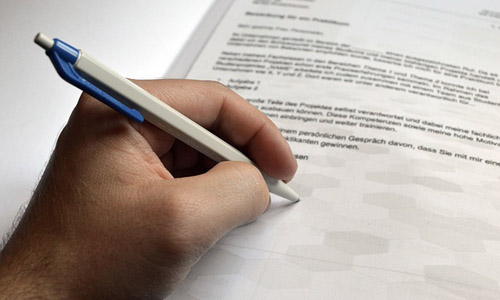Patent Application Translation Service
In the highly competitive world of innovation, securing patents is crucial for protecting your intellectual property on a global scale. Our Patent Application Translation Service is tailored to meet the intricate needs of inventors, companies, and legal professionals aiming to expand their patents across international borders. Whether you are filing in the United States, Europe, Asia, or any other region, our service delivers culturally and legally appropriate translations that preserve the integrity of your original document. With our expert assistance, you can confidently present your innovations in new markets, knowing that every technical detail and legal nuance has been meticulously maintained. Trust our Patent Application Translation Service to help you navigate the complex global patent landscape and safeguard your inventions with translations that are as innovative as your ideas.
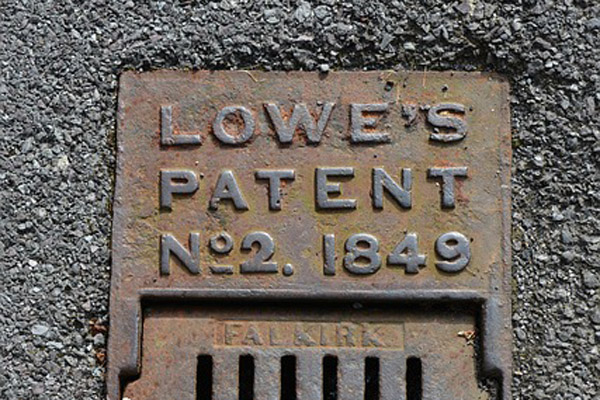
Why Choose Us
Best Patent Application Translator
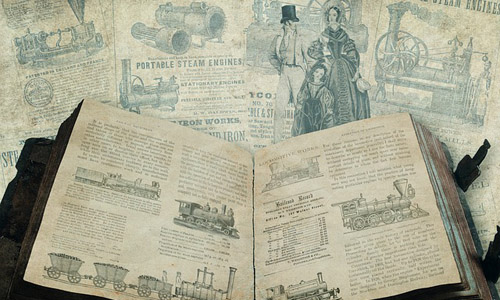
1.Why Patent Application Translation Is So Important?
Patent application translation is crucial for several reasons, especially in the global marketplace where intellectual property rights must be protected across multiple jurisdictions. Here are some key reasons why it is so important:
- Legal Compliance Across Borders: Patent laws vary significantly from one country to another. A precise translation ensures that your patent application meets the specific legal requirements of each jurisdiction, preventing costly legal disputes or rejections due to non-compliance.
- Preservation of Technical Accuracy: Patents often involve complex technical language that must be translated accurately to maintain the original meaning. A mistranslation can lead to misunderstandings, weakening your patent’s protection or leaving gaps that competitors can exploit.
more
- Protection of Intellectual Property: In the global innovation landscape, ensuring that your patent is effectively protected in all relevant markets is essential. A well-translated patent application safeguards your intellectual property by ensuring that your rights are clearly defined and enforceable in different regions.
- Global Market Expansion: For inventors and companies looking to expand into international markets, a well-translated patent application is critical. It allows you to secure your innovations in new territories, opening up opportunities for growth and collaboration while preventing unauthorized use of your inventions.
- Avoidance of Costly Errors: Errors in patent translation can lead to serious consequences, including delays in the patent approval process, increased legal fees, or even the loss of patent rights. Investing in high-quality translation services helps avoid these costly mistakes.
In summary, patent application translation is not just about converting words from one language to another; it’s about ensuring that your intellectual property is protected with the same rigor and precision globally as it is locally.
2.Qualification Requirements
Translating patent applications requires a high level of expertise due to the complex nature of legal and technical terminology involved. To ensure that patent translations are accurate, reliable, and legally compliant, several key qualifications and requirements should be met:
- Expert Knowledge of Patent Law: Translators should have a thorough understanding of patent law and regulations in both the source and target languages. This knowledge ensures that the translation adheres to legal standards and accurately reflects the patent’s scope and claims.
- Technical Expertise: Since patents often involve specialized technical fields such as engineering, chemistry, or biotechnology, translators need expertise in the relevant technical domain. This expertise allows them to accurately interpret and convey complex technical concepts.
more
- Proficiency in Both Languages: Translators must be fluent in both the source and target languages, with a deep understanding of legal and technical terminology in each language. This proficiency ensures that the translation is precise and contextually appropriate.
- Attention to Detail: Patent applications require meticulous attention to detail to ensure that every technical term and legal nuance is correctly translated. Translators must be skilled in managing and preserving the integrity of detailed information.
- Experience in Patent Translation: Experience in translating patent applications is crucial. Translators with a background in patent translation are familiar with the common challenges and nuances, which helps in producing high-quality translations.
- Confidentiality and Security: Given the sensitive nature of patent applications, translators must adhere to strict confidentiality and security protocols to protect proprietary information and intellectual property.
- Understanding of International Patent Systems: Knowledge of different international patent systems and filing procedures is important to ensure that the translation aligns with the specific requirements of each patent office.
By meeting these qualification requirements, translators can provide patent application translations that uphold the technical accuracy and legal integrity necessary for successful patent protection across global markets.
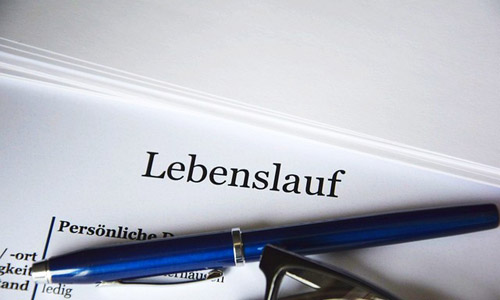

3.Translation Techniques
Effective patent application translation requires a range of specialized techniques to ensure accuracy, consistency, and legal compliance. Here are some key translation techniques used in this field:
- Terminology Management: Creating and maintaining a comprehensive glossary of technical and legal terms is essential. This ensures consistent use of terminology throughout the document and helps prevent errors in translation. Tools such as translation memory (TM) systems can aid in managing and standardizing terminology.
- Contextual Understanding: Translators must thoroughly understand the context in which technical terms and phrases are used. This involves not only translating individual terms but also ensuring that the translation accurately reflects the technical and legal context of the patent claims and descriptions.
more
- Literal vs. Adaptive Translation: Patent translations often require a balance between literal translation and adaptive translation. Literal translation is necessary to maintain the exact wording of patent claims, while adaptive translation may be used for explanatory text to ensure that the content is clear and comprehensible in the target language.
- Legal Equivalence: Translators need to ensure that the translated text adheres to the legal standards and practices of the target jurisdiction. This involves understanding the legal terminology and patent regulations specific to the target country to ensure that the translated document is legally valid and enforceable.
- Technical Accuracy: Precision in technical translation is crucial. Translators must accurately convey technical details, specifications, and processes described in the patent application. This often requires in-depth knowledge of the relevant technical field.
- Review and Proofreading: Rigorous review and proofreading are essential to catch any errors or inconsistencies in the translation. This process often involves multiple rounds of checking by different experts, including legal and technical reviewers, to ensure the highest level of accuracy.
- Formatting and Layout: Maintaining the formatting and layout of the original patent application is important for consistency and readability. Translators should ensure that the translated document mirrors the structure of the original while adhering to the conventions of the target language.
- Cultural Adaptation: While patents are highly technical, certain cultural or regional nuances may impact how the content is interpreted. Translators should be aware of any cultural differences that might affect the understanding of the patent’s scope and claims.
By employing these techniques, translators can produce high-quality patent application translations that effectively protect intellectual property and meet the rigorous standards required by patent offices worldwide.
Patent Application Translation in 3 Simple Steps
4.Team Advantage
With nearly 20 years of industry refinement, 1 billion words produced, and over 10,000 interpretation sessions, Jinyu has always focused on the original needs of our clients. Our translation team excels at handling various professional documents, fulfilling entrusted tasks with ease.
We deeply understand the essence of translation, recognizing the needs and goals of our clients. We flexibly create optimized solutions based on different content and genres, delivering the highest quality results through our quality management system.
more
Our clients have always benefited from our team:
- Excellent cooperation with outstanding translators, translation companies, translation groups, and localization institutions worldwide, along with extensive social resources.
- Profound professional skills, extensive translation experience, and comprehensive knowledge.
- A robust quality system and strict confidentiality management.
- Meticulous, prompt, sincere, and efficient service.
- A rigorous, diligent, and punctual professional attitude.
- A spirit of continuous learning, pursuing perfection, and embracing innovation.
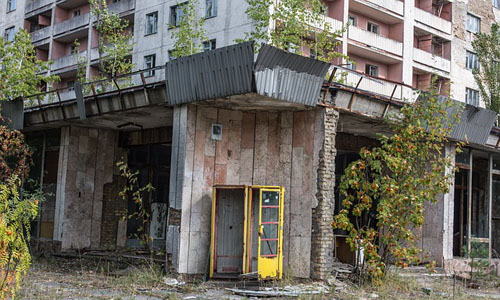

5.Price System
- The translation fees between different languages may vary. Generally, the cost for translating common language pairs is lower, while rare languages or those specific to certain fields may have higher fees.
- Translation is usually charged based on the word count or page count of the source document. Longer summary reports will result in higher translation costs.
- Interpretation services are typically charged by the hour.
- Large translation projects may be eligible for discounts.
more
Language Proficiency: Translators must have a high level of proficiency in both the source and target languages. This includes a deep understanding of linguistic nuances, idiomatic expressions, and cultural contexts to ensure accurate and appropriate translations.
Specialized Knowledge: Visa translators should have specialized knowledge of legal and immigration terminology. This ensures that all legal terms and procedural language are accurately translated, which is crucial for the acceptance of the documents by immigration authorities.
Attention to Detail: Visa translators must possess exceptional attention to detail to avoid errors that could lead to visa rejections or delays. This includes carefully checking personal information, dates, names, and other critical details.
Experience: Experienced translators are preferred for visa translation due to their familiarity with the common requirements and pitfalls in visa documentation. Experience helps in delivering consistent and reliable translations.
Professional Ethics: Translators must adhere to strict professional ethics, including confidentiality and impartiality. Handling sensitive personal and legal information requires a commitment to maintaining the privacy and integrity of the documents.
Accreditation: Some countries may require translators to be accredited by government bodies or immigration agencies. This accreditation often involves additional testing or approval processes to ensure the translator’s qualifications.
Proof of Qualifications: Translators may need to provide proof of their qualifications, such as diplomas, certifications, and letters of recommendation, to be accepted by immigration authorities or clients.
Compliance with Local Regulations: Translators must comply with the specific regulations and requirements of the destination country’s immigration authorities. This includes understanding the format and standards expected for translated documents.
Technical Skills: Proficiency in using translation software and tools can enhance accuracy and efficiency. Familiarity with formatting and presentation requirements for legal documents is also beneficial.
In summary, the qualification requirements for visa translation emphasize certification, language proficiency, specialized knowledge, attention to detail, experience, and adherence to professional ethics. These qualifications ensure that visa translations are accurate, reliable, and accepted by immigration authorities.
6.After-sale Guarantee
To ensure customer satisfaction and the highest quality of service, a comprehensive after-sale guarantee for visa translation is essential. Here are the key components of an effective after-sale guarantee for visa translation:
- Accuracy Assurance: We guarantee the accuracy of our translations. If any errors are found, we will promptly correct them at no additional cost.
- Timely Delivery: We commit to delivering all translations within the agreed timeframe. If there are any delays on our part, we will offer compensation or expedited service to meet your deadlines.
more
- Confidentiality: All documents and personal information are handled with the utmost confidentiality. We ensure that your sensitive information is protected throughout the translation process and beyond.
- Free Revisions: We offer free revisions if the translated document requires adjustments or if the immigration authorities request specific changes. Our goal is to ensure your complete satisfaction with the final product.
- Customer Support: Our customer support team is available to assist you with any questions or concerns you may have before, during, and after the translation process. We are committed to providing prompt and helpful responses.
- Quality Control: Every translation undergoes a thorough quality control process, including proofreading and review by a second translator, to ensure the highest standards of accuracy and consistency.
- Certified Translations: Our translations are certified and accepted by immigration authorities. We provide official certification statements or notarizations as required by the destination country.
- Ongoing Support: We offer ongoing support for any follow-up questions or additional translation needs that may arise related to the initial visa translation.
- Compliance with Standards: Our translations comply with international and local standards required by immigration authorities. We stay updated with the latest regulations to ensure that your documents meet all necessary requirements.
In summary, our after-sale guarantee for visa translation focuses on accuracy, confidentiality, timely delivery, free revisions, and comprehensive customer support to ensure that you receive the highest quality service and complete satisfaction with your translated documents.
